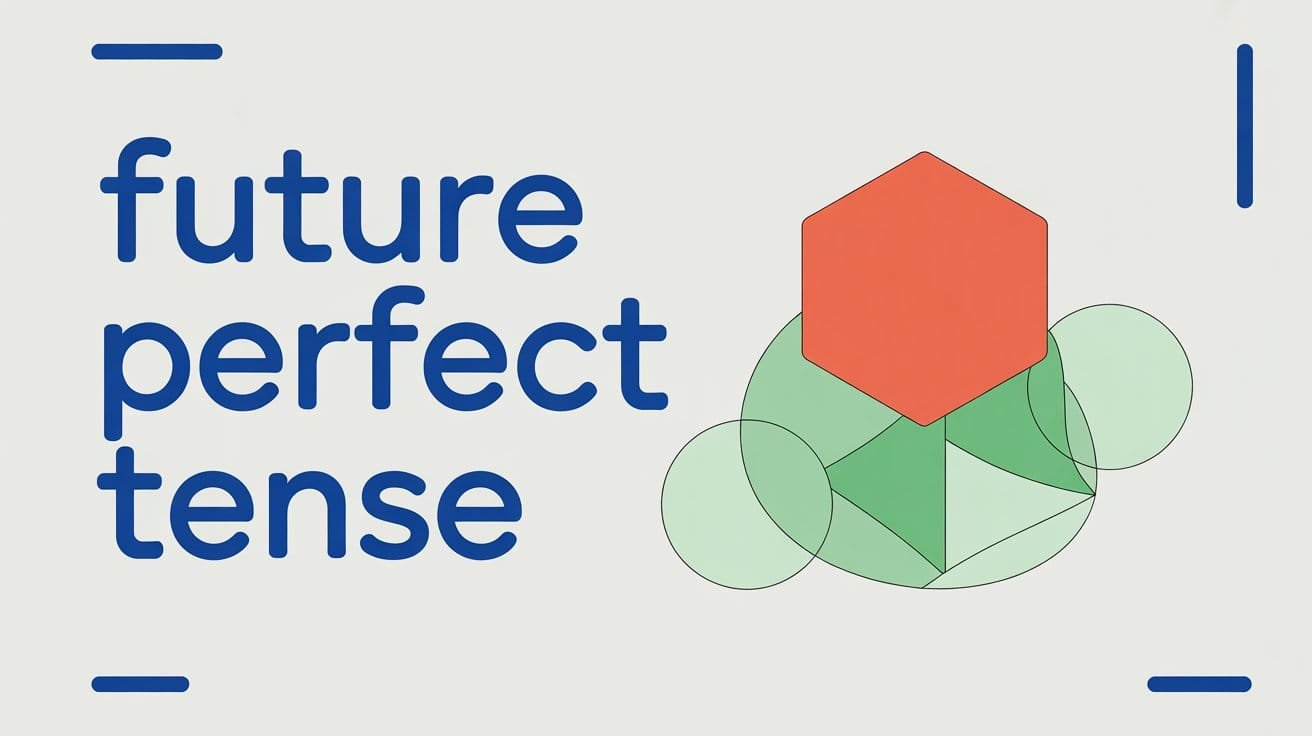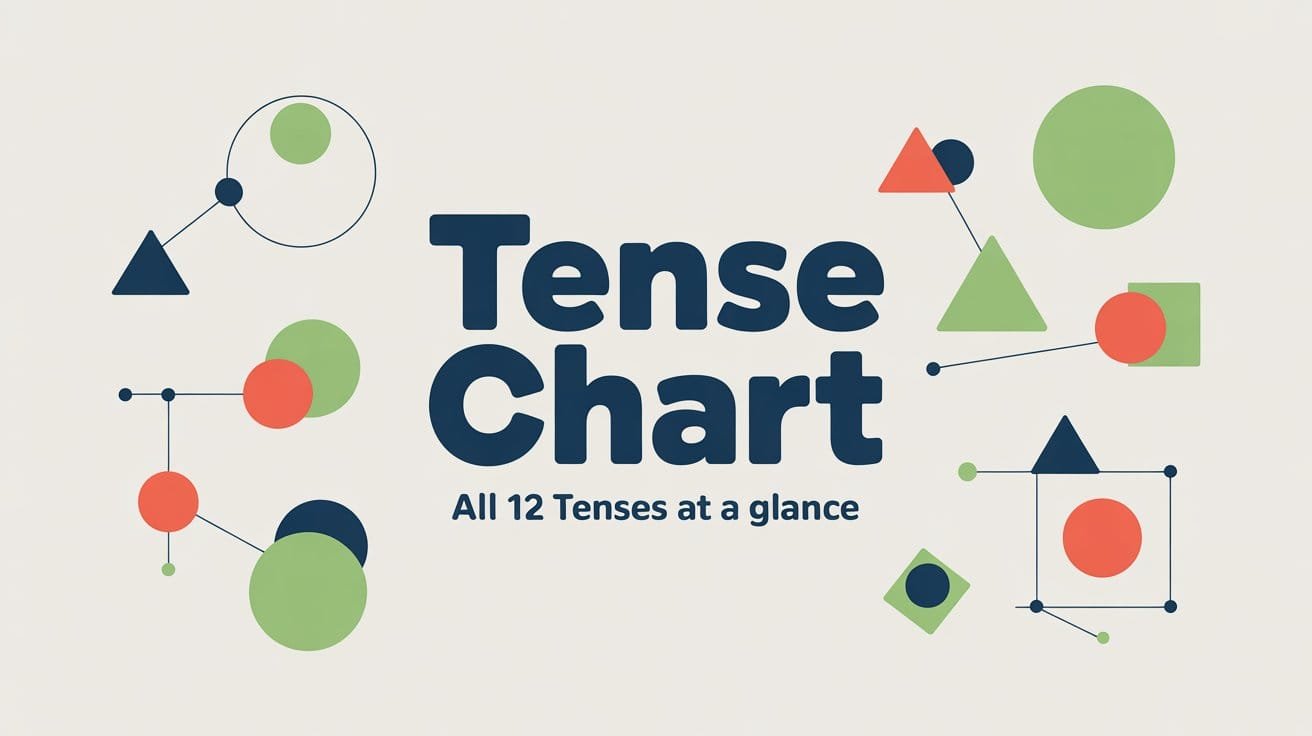The future perfect tense is used to describe actions that will be completed before a certain point in the future. It allows you to look ahead and explain what will be done by a specific time. For example: “She will have completed the report by 6 PM.” This tells us that the action (completing the report) will be finished before 6 PM.
This tense is especially useful for setting deadlines, tracking progress, or talking about future achievements. In this guide, you’ll learn how to form the future perfect tense, understand when to use it, and see how it fits into real situations, with examples to make it clear.
Structure of the Future Perfect Tense
The future perfect tense is used to show that an action will be completed before a specific time or event in the future. It’s formed using will have + past participle of the main verb.
This structure stays the same for all subjects—I, you, he, she, it, we, they.
Affirmative Sentences
Structure:
Subject + will have + past participle
Examples:
- I will have cleaned the entire garage before noon.
- She will have submitted the scholarship form by Friday.
- They will have landed in Tokyo before sunset.
- The students will have completed the exam by 11:30.
Negative Sentences
Structure:
Subject + will not (won’t) have + past participle
Examples:
- He will not have prepared the slides before the meeting.
- I won’t have reached the station by the time the train arrives.
- We will not have finished editing the video by tonight.
- They won’t have planted all the saplings by Saturday.
Interrogative Sentences
Structure:
Will + subject + have + past participle?
Examples:
- Will you have completed your internship by next month?
- Will she have written the thank-you notes by tomorrow?
- Will they have moved into the new apartment by June?
- Will the team have reviewed the proposal before the deadline?
Usage of the Future Perfect Tense
The future perfect tense is used when you want to express that something will be completed before a certain time or event in the future. This tense is helpful for describing deadlines, progress, and results.
To Show Completion Before a Specific Time in the Future
Use this tense to state that something will be done by a certain moment.
Examples:
- She will have graduated by the end of the year.
- I will have finished the book before the weekend.
- They will have left the venue by 9 PM.
To Highlight Expected Progress or Achievement
It’s often used to project future accomplishments or stages completed.
Examples:
- By next summer, we will have built five new classrooms.
- He will have learned basic French before his trip to Paris.
- You will have covered all the topics before the exam.
To Set the Scene for a Future Action
It can provide context for another action that occurs after the first one is completed.
Examples:
- The guests will have arrived by the time we start dinner.
- She will have sent the file before you need it.
- The sun will have set when we reach the beach.
Common Time Expressions with the Future Perfect Tense
The future perfect tense often works with time expressions that clearly point to a cutoff point in the future. These expressions help show when the action will be completed.
Common Expressions:
- by [a future time or date]
- before
- by the time
- when
- in [a period of time]
- by then
- by tomorrow / by next week / by 2026
Examples:
- She will have cleaned the apartment by 3 PM.
- We will have completed the project before the review begins.
- They will have packed everything by the time the movers arrive.
- He will have recovered in a few weeks.
- I will have written three chapters by tomorrow.
- You will have learned the basics by then.
Practice Tips for Using the Future Perfect Tense
The future perfect tense can be tricky at first, but practicing it with real situations and timelines makes it easier. Focus on actions that will be completed before something else in the future.
Create Personal Deadlines
Think of goals or tasks and pair them with future time points.
Examples:
- I will have written five blog posts by next Friday.
- She will have organized the files before the manager arrives.
Compare Two Future Events
Use one event to set the time limit for another.
Examples:
- The band will have finished soundcheck before the audience comes in.
- You will have eaten by the time the movie starts.
Ask and Answer Predictive Questions
Practice forming questions and responses.
Examples:
- Will you have completed your course by December?
– Yes, I will have finished it by mid-November. - Will she have saved enough to buy the laptop?
– She’ll have it saved up by next month.
Use It in Planning Conversations
Incorporate the tense when talking about long-term goals or expectations.
Examples:
- By next year, I’ll have switched to a new job.
- We will have moved to our new office by June.
Frequently Asked Questions About the Future Perfect Tense
What is the future perfect tense and when is it used?
The future perfect tense is used to describe an action that will be completed before a certain point in the future. It’s often paired with time markers like by tomorrow or by the time she arrives.
How do you form the future perfect tense?
Use will have + past participle. This works for all subjects. Example: They will have finished the assignment by 6 PM.
What’s the difference between future perfect and future simple?
Future simple describes something that will happen. Example: He will start the meeting at 9 AM.
Future perfect describes something that will be done by a certain time. Example: He will have started the meeting by 9 AM.
Can we use “shall” in the future perfect tense?
Yes, but it’s rare and more formal. It’s mainly used with I and we in British English. Example: I shall have submitted the form by then.
What are some examples of future perfect sentences?
She will have completed her training by July.
We will have left before the rush hour begins.
Will they have read the instructions by the time class starts?



